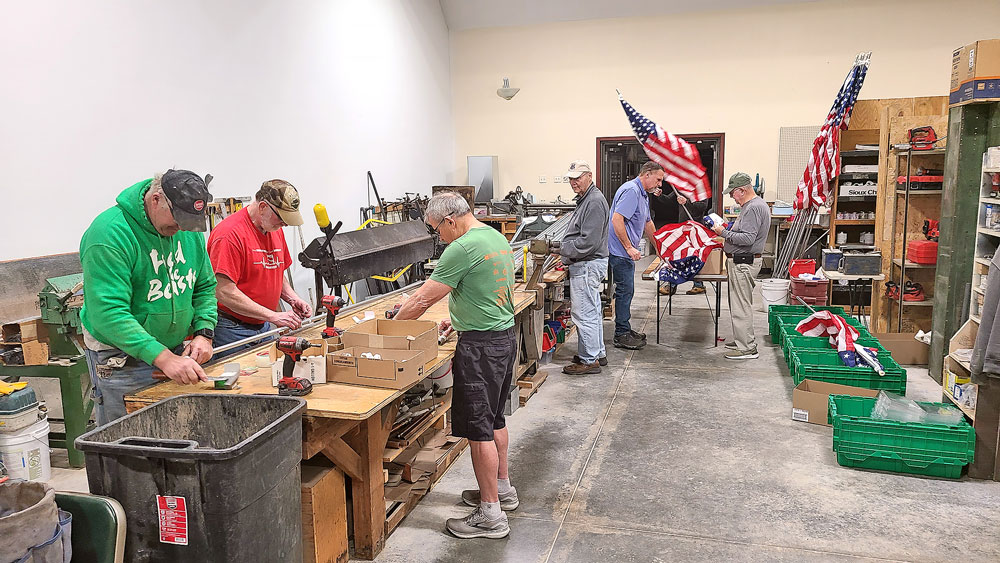County again tackles animals at-large law

By Bob Steenson, bsteenson@charlescitypress.com
Loose livestock was the topic again Monday morning at a Floyd County Board of Supervisors work session, with several county farmers raising concerns about a proposal to deal with the issue.
Driven by problems with animals — particularly cattle — breaking through or getting around fencing and potentially wandering onto county roadways, the supervisors have been discussing for a couple of weeks a possible ordinance that would make it a penalty to allow livestock to wander off the owner’s premises.
On May 23 the board members tabled an initial draft of an ordinance, expressing concerns that it went too far. On Monday the discussion came to a similar conclusion, that further changes are necessary.
That first effort would have covered small animals such as dogs and cats that wander onto a neighboring property, but supervisors said that was too broad and asked Assistant County Attorney Randall Tilton to revise it to cover livestock only.
The proposed ordinance discussed Monday covers only livestock, defined as bovine (cattle), caprine (goats), equine (horses), ovine (sheep) or porcine (hog) species; ostriches, rheas or emus; farm deer or poultry.
The proposal lists three types of violations:
- “It is unlawful for any owner to allow livestock to run at large within Floyd County.”
- “Is is unlawful for the owner of livestock to allow or permit such livestock to pass upon the premises of another thereby causing damage to, or interference with the premises, property of livestock of another.”
- “ It is unlawful for the owner of livestock to allow or permit such livestock to cause serious annoyance or disturbance to any person or persons by frequent noise or otherwise.”
Penalty for violations could be up to a $625 fine or imprisonment for up to 30 days if charged as a misdemeanor, or by a civil penalty of $750 to $1,000 if charged as a county infraction, although usually a judge would issue a much lower fine on first offenses.
Three farmers attended the workshop to express concerns about the proposed ordinance.
Kathy Behrens said she raises free-range chickens and she is concerned about the part of the ordinance that mentions noise.
“If my rooster’s crowing in the morning and that bothers the guy across the street I could be fined $625, according to the way this is written,” she said.
“I have a goat, and if my goat got out and ate the neighbor’s prize roses or whatever, if I didn’t attempt to mitigate that … maybe I should be fined,” Bahrens said. “But if I really make an effort to make sure my goat doesn’t get out, then I don’t believe I should be fined. We’re an agricultural county.”
Wendy Johnson is a farmer who said she raises pastured livestock including lambs, goats, pigs, turkeys and chickens.
“We want our animals to have a humane life so they are out on pasture,” she said. “We can’t always help if our animals get out. I’ve had sheep get out this year because our fencing is pretty poor around our creek area — we had some flooding last fall and I’ve been waiting on an EQIP grant to get new fencing put in.
“We mend up the fences to make sure they can’t get out, but they do, they find places to get out,” Johnson said. “These things happen. … To get fined right off the bat when they have a cow get out or a sheep get out, it’s a difficult situation for everybody.”
Ethan Vorhes of rural Marble Rock said he has had ongoing disputes with neighbors and said vandals have purposely opened gates or shorted out electrical fences to allow cattle to roam.
“We’ve been locked in a legal battle for seven years over control of our family farm,” he said, “and in those seven years we’ve had major flooding year after year after year that leaves our fences in complete ruin.
“I’ve had agreements with the landowner to put in fences, but they’ve been unable to do it because of the legal challenges, injunctions. … It sounds ridiculous, but it’s a problem.
“This looks like a way to let people do legal harassment,” Vorhes said. “We want to be pro-agriculture, but this is going to drive people away from Floyd County.”
Doug Kamm, supervisor chairman, said to Vorhes, “I’ll be honest with you, you’re one of the reasons that we’re here. There’s been a huge record of offenses with you, a large number of them, 130 of them in the last 10, 12, 14 years. It’s a complete waste of law enforcement time doing that.”
Supervisor Mark Kuhn suggested that the ordinance needs something like a habitual offender clause, that says fines won’t be imposed until after a certain number of violations, but he said he wasn’t sure what the time period should be for those violations to occur.
Sheriff Jeff Crooks, who was at the meeting, said his department usually doesn’t cite right away on first offenses.
“I believe if people are trying to do what’s right and fix the problems they’re having, we give breaks,” he said, but Crooks added that a livestock at-large ordinance is a tool that his department could use for situations that warrant it.
“The biggest thing that I like to see about it is safety. You guys driving down the road, I don’t want you hitting a cow,” Crooks said.
Supervisor Linda Tjaden, herself a farmer who raises cattle, said, “We as owners of our own livestock have a responsibility.”
While occasionally livestock can get out for a variety of reasons, it’s important that owners take corrective action as soon as possible, she said.
Kamm said, “As I said, it’s a real simple solution — just keep ’em inside” the fences. “If they’re inside, they’re off the roads.”
Supervisors can’t take official actions at a work session, but the discussion resulted in agreement that additional changes are needed, especially in the area of adding a habitual offender or similar limitation, and in the area of livestock disturbing neighbors.
The next regular session of the county board is 9 a.m. Tuesday, June 13.
Also at Monday’s meeting, the supervisors:
- Heard an update on Project AWARE, that will spend a week July 10-14 with canoeists cleaning up the Upper Cedar River July 10-14, including spending Wednesday and Thursday night that week camping at Riverfront Park in Charles City. For more information on this event and to download registration materials, visit www.iowadnr.gov/aware.
- Discussed changes to parking policy for the lots around the courthouse to make more spaces close to the courthouse available to the public.
- Noted the resignation for retirement of home health care aide Mary Louise O’Connell.








Social Share